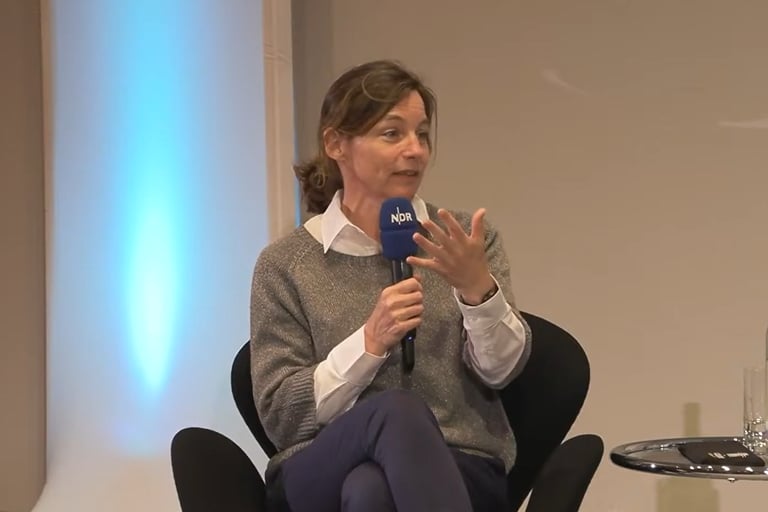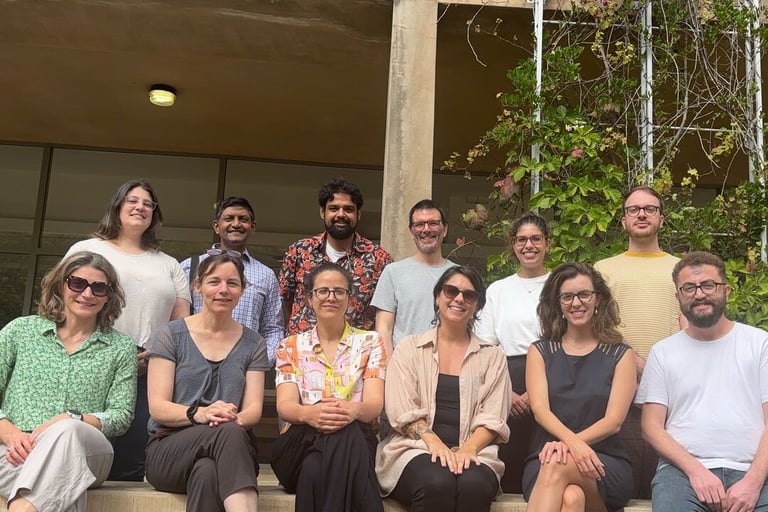Activities
5th of November: FGV Workshop


On November 5, 2025, principal investigator Raquel Pimenta and postdoctoral researcher Iana Lima presented their co-authored paper, “Career Politicians and the Quiet Dilution of Brazil’s Tax Reform: The Case of Offshores and Super-Rich Investment Funds,” in a research seminar at the FGV São Paulo Law School (FGV Direito SP). The presentation was followed by a discussion led by Professor Sarah Marinho, alongside faculty members and students of the Law School. The session explored how Brazil’s 2023–24 tax reform—initially framed as a progressive measure—was gradually diluted during the legislative process and how the socio-professional profiles of policymakers shape fiscal outcomes. The debate fostered an engaging exchange on the political economy of taxation, the role of legal expertise in fiscal policymaking, and the mechanisms through which elite interests are maintained within democratic institutions.
3rd of November: European Commission Meeting






On November 3, 2025, the São Paulo School of Economics at Fundação Getulio Vargas (FGV EESP) and the FGV São Paulo Law School (FGV Direito SP) hosted Teresa Ribera, Executive Vice President of the European Commission, and her international competition policy team for an institutional visit and discussion. During the event, Raquel Pimenta, principal investigator of the Politics and Wealth Reproduction (PoWER) project and coordinator of the Center for Law and Political Economy (NUDEP), presented the project alongside doctoral researchers Giovanna Teixeira and Raíssa Leite. The meeting brought together representatives from NUDEP and the Center for Competition, Public Policy, Innovation and Technology (COMPPIT), as well as faculty, researchers, and students from both schools. Following the presentation of research initiatives, the discussion addressed how Europe is perceived in Brazil and Latin America and examined its current and potential roles in shaping climate and competition policies within the broader geopolitical landscape.
22nd- 24th of October: National Association of Postgraduate Studies and Research in Social Sciences (ANPOCS Annual Meeting)


In October 2025, postdoctoral researcher Iana Lima presented the paper “Career Politicians and the Quiet Dilution of Brazil’s Tax Reform: The Case of Offshores and Super-Rich Investment Funds,” co-authored with principal investigator Raquel Pimenta, at the Annual Meeting of the National Association of Postgraduate Studies and Research in Social Sciences (ANPOCS), held in Campinas, São Paulo, Brazil, from October 22–24. The study investigates how Brazil’s 2023–24 tax reform was reshaped during the legislative process, revealing how political trajectories and organizational affiliations influenced the dilution of its redistributive goals. Combining document analysis, prosopography, discourse network analysis, and logistic regression, the research sheds light on how career politicians and institutional networks contribute to preserving elite advantages in fiscal policymaking.
September 2025: Political Elites and Inequality Workshop in Konstanz
In September 2025, Dr Despina Alexiadou attended the Political Elites and Inequality Workshop at the University of Konstanz (Germany). Here, she presented the paper “Do their Interests Matter? Finance Ministers and Wealth Inequality in Europe” (co-authored with Dr Giulia Venturini, Prof Miquel Pellicer, and Prof. Eva Wegner), in which they investigate the relationship between finance ministers’ professional and economic interests and economic policies, with a focus on taxation and financial regulation. For more details, see here; https://wealthpolicies.eu/work-in-progress
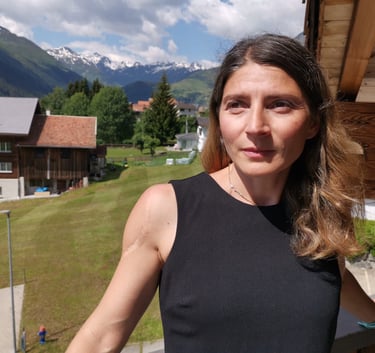

50 countries In September 2025, Drs Despina Alexiadou and Giulia Venturini attended the American Political Science Association (APSA) Conference in Vancouver (Canada). Here, they presented the paper “Do their Interests Matter? Finance Ministers and Wealth Inequality in Europe” (co-authored with Profs Miquel Pellicer and Eva Wegner), in which they investigate the relationship between finance ministers’ professional and economic interests and economic policies, with a focus on taxation and financial regulation. For more details, see here; https://wealthpolicies.eu/work-in-progress
September 11–14, 2025: American Political Science Association (APSA) Conference 2025


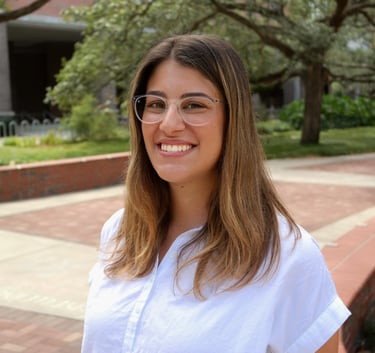

10th of July 2025: Podcast Onze Supremos


On July 10, principal investigator Raquel Pimenta participated in the podcast Onze Supremos in the episode titled “Law, Elites, and the Reproduction of Wealth,” where she discussed findings from the Politics of Wealth Reproduction (PoWER) project. The conversation explored the concept of the six “capacities of wealth” — security, opportunity, income, inheritance, status, and power — and connected them to broader normative dilemmas such as inheritance taxation, elite influence on elections, and institutional strategies to curb wealth reproduction. The episode examined how economic power is structured and reproduced in Brazil’s democracy, raising reflections on whether and how such dynamics can be reconfigured. The full episode is available at:
https://www.youtube.com/watch?v=lJDdTO0Nm8U&list=PL5ZSpFL_Wu9fc4M2gqG5VVMqnMe0wZ6bC&index=17
9th - 12th of July 2025: Society for the Advancement of Socio-Economics (2025 SASE Annual Conference)
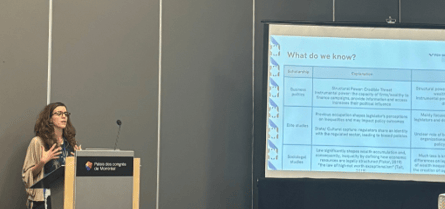

In July 2025, principal investigator Raquel Pimenta participated in the Society for the Advancement of Socio-Economics (SASE) Annual Conference, held in Montreal, Canada, from July 9–12, where she presented the paper “Professional Politicians and the Quiet Dilution of Brazil’s Tax Reform: The Case of Offshores and Super-Rich Investment Funds,” co-authored with postdoctoral researcher Iana Lima. The study explores how Brazil’s 2023–24 tax reform—initially framed as a progressive measure—was gradually weakened during the legislative process. By linking patterns of amendment sponsorship to legislators’ socio-professional backgrounds, the paper reveals how institutional actors contribute to shaping redistributive outcomes. The research advances debates on the political economy of taxation by uncovering the mechanisms through which fiscal reforms are diluted and elite interests maintained.
8th of July 2025: Law and Political Economy Scholar Workshop


In July 2025, principal investigator Raquel Pimenta participated in the Law and Political Economy Scholar Workshop, held on July 8, where she presented the paper “Hiding Wealth in Plain Sight: Opaqueness as Elite Strategy in Brazilian Tax Policy Making,” co-authored with postdoctoral researcher Iana Lima. The paper examines how legal and institutional complexity operates as a tool for elite influence in tax policymaking, using Brazil’s 2023–24 reform to tax offshore structures and “exclusive” investment funds as a case study. It contributes to broader debates on law, inequality, and the political economy of taxation by highlighting how the design of fiscal rules can obscure—and ultimately sustain—wealth concentration.
3rd of July 2025: Welfare States Matter for Democracy: Income-Based Participatory Inequality
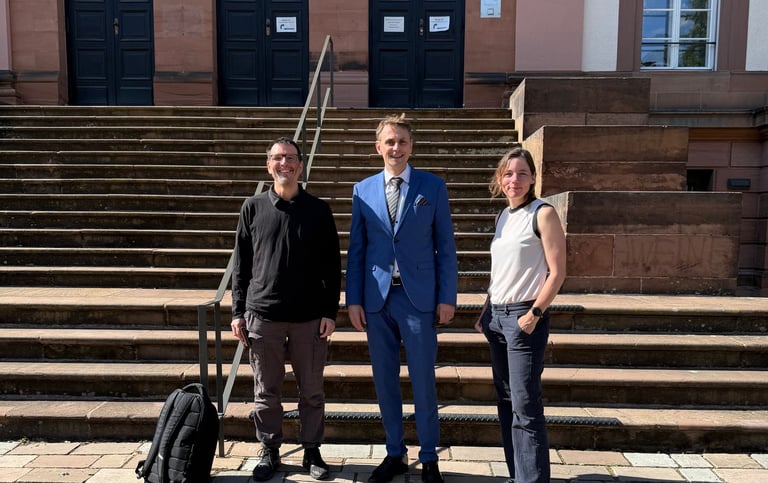

Our guest speaker Carsten Schneider, Professor of Political Science at Central European University (CEU), presented his research on the topic: “Welfare States Matter for Democracy: Income-Based Participatory Inequality”.
Poorer citizens generally participate less in politics. Yet, this income-based gap in participation is not the same across democracies and over time. Existing attempts at understanding the sources of this variation point to macro-level factors, such as compulsory voting, ballot complexity, or income inequality (Gallego, 2015; Solt, 2008) are not successful in explaining temporal variation in this participation gap when the institutional framework is stable. We propose a largely neglected, yet plausible, reason for the effect of income on political participation: the characteristics of the welfare state. In addition to providing resources relevant to participation, welfare state arrangements also create political constituencies that can be mobilized around a shared goal by political entrepreneurs. Building on Schneider and Makszin’s (2014) education-based analysis we inductively develop, with the use of Qualitative Comparative Analysis (QCA), various welfare regime types that condition patterns of income-based participatory inequality in democracies. These are produced based on an original data set from 19 OECD members between 1960 and 2010. In a second step, we complement our aggregate-level QCA with individual-level tests of the hypothesized mechanisms linking welfare regime types to low gaps in participatory inequality. Relying on six cross-national survey programs, such as the European Social Survey or the Comparative Study of Electoral Systems, we find consistent support for the mobilization-based mechanisms, while revealing mixed evidence for an attitudinal change mechanism and the resource-based mechanisms. Overall, our results indicate the effect of welfare state characteristics on political participation gaps in advanced industrial democracies. Welfare state reforms, and in particular retrenchment, are likely to have (damaging) consequences for democracy.
(left to right) Miquel Pellicer, Carsten Q. Schneider and Eva Wegner
26-27th June 2025: Repal Conference


In June 2025, principal investigator Raquel Pimenta and postdoctoral researcher Iana Lima participated in the 11th Annual Conference of the Red para el Estudio de la Economía Política de América Latina (REPAL), held in São Paulo. At the event, Pimenta presented their co-authored paper, “Background and Influence: Unveiling the Mechanisms of Wealth Reproduction Among Policy Makers.” The study explores how political trajectories and institutional dynamics shape fiscal policymaking in Brazil, contributing to broader debates on wealth, representation, and the political economy of taxation in Latin America.


In June 2025, Drs Despina Alexiadou and Giulia Venturini attended the European Political Science Association (EPSA) Conference in Madrid (Spain). Here, they presented the paper “Do their Interests Matter? Finance Ministers and Wealth Inequality in Europe” (co-authored with Profs Miquel Pellicer and Eva Wegner), in which they investigate the relationship between finance ministers’ professional and economic interests and economic policies, with a focus on taxation and financial regulation. For more details, see here; https://wealthpolicies.eu/work-in-progress
June 2025: European Political Science Association (EPSA) Conference in Madrid


10th of June 2025: Money, money, money – Does Money Rule the World?
It shapes our private lives, drives political power, and increasingly defines global relationships. Wealth offers far more than comfort—it brings influence, authority, and access. This connection was starkly illustrated when Donald Trump, upon returning to office, handed sweeping powers to Elon Musk, possibly the world’s richest man, highlighting how financial capital can translate directly into political impact. Money has long been central to how states wield power, using monetary policy to stabilize economies and assert influence—alongside military strength and trade strategies. For individuals, money meets essential needs, fulfills aspirations, and, where absent, leads to hardship and exclusion. But how did money come to hold such immense significance? When did it become so entwined with control, status, and survival? Can we learn to use it more responsibly—and can it really make us happy?
These questions were at the core of the Herrenhäuser Gespräch on June 10, 2025, in Hanover. Among the speakers was Prof. Eva Wegner, who shared findings from our project, “Politicians, Policies, and the Reproduction of Wealth”, which explores how political decisions shape the distribution and preservation of wealth over time.
Curious about what she had to say? Watch the full recording here (in German)
May 2025: Folha de S. Paulo publishes op-ed "How the career of politicians influences their policies"


In May 2025, Folha de S. Paulo published an op-ed by Raquel Pimenta, principal investigator of the Politics and Wealth Reproduction (PoWER) project, and postdoctoral researcher Iana Lima, discussing the overrepresentation of the super-rich in Brazil’s political institutions. The article examines Minister of Finance Fernando Haddad’s remark that wealthy elites are disproportionately represented in Congress—an issue echoed in public opinion surveys showing widespread perceptions that Brazil is governed by a small, powerful elite. Drawing on international research, the authors argue that politicians’ socioeconomic backgrounds shape not only their beliefs but also the policies they advance, influencing distributive outcomes over time. They present ongoing research done at the PoWER project that investigates how policymakers’ trajectories affect income concentration across 50 democracies, with Brazil serving as one of the key case studies focused on income taxation and redistributive reform. The piece is available at: https://www1.folha.uol.com.br/opiniao/2025/05/como-a-trajetoria-dos-politicos-influencia-as-politicas-publicas.shtml
May 2025: EGEN 2025 - Women Ministers
In May 2025, Dr Giulia Venturini attended the Empirical Study of Gender Research Network Workshop at ITAM in Mexico City (Mexico). Here she presented the paper “Women in Top Ministerial Positions: A Comparative Perspective” (co-authored with Dr. Despina Alexiadou), in which they investigate whether women in senior ministerial positions have significantly different profiles compared to men. Specifically, the paper studies the extent to which women’s qualifications (in terms of education and prior professional experience) and connections (both familial and those derived from informal networks) differ from those of their male counterparts.


3th - 6th of March 2025: Power Project Research Meeting in Cape Town
Just over a month ago, our team gathered in beautiful Cape Town, South Africa, for the second in-person meeting of our project, “Politicians, Policies, and the Reproduction of Wealth”. This project brings together an interdisciplinary group of scholars from political science, economics, and law from South Africa, Brazil, Scotland and Germany, united by a shared interest in understanding how political actors and policy frameworks influence the long-term distribution and reproduction of wealth. Over several days of intensive sessions, we engaged in in-depth discussions of our ongoing research, critically evaluated preliminary findings, and identified new opportunities for collaboration. Together, we refined our shared research agenda and laid the foundation for new interdisciplinary initiatives that will guide the next phase of our project.
Beyond the formal academic program, the meeting also offered valuable opportunities for informal exchange. Shared dinners, casual gatherings, and time spent exploring Cape Town made this project meeting perfect and complemented our scholarly work. We are grateful to all participants for their enthusiasm, insights, and commitment. We look forward with excitement to our next meeting and to continuing the important work ahead.
(back; left to right) Giulia Venturini, Vimal Ranchhod, Arindam Jana, Miquel Pellicer, Iana Alves de Lima, Lukas Rädle, Despina Alexiadou, Eva Wegner, Leticia Barbabela, Paula Pagliari de Braud, Raquel de Mattos Pimenta, Ibrahim Kuran
In August 2024, Dr Giulia Venturini attended the first annual WhoGov Workshop at the University of Oslo (Norway). Here she presented the paper “Do their Interests Matter? Finance Ministers and Wealth Inequality in Europe” (co-authored with Dr Despina Alexiadou, Prof Miquel Pellicer, and Prof. Eva Wegner), in which they investigate the relationship between finance ministers’ professional and economic interests and economic policies, with a focus on taxation and financial regulation. For more details, see here; https://wealthpolicies.eu/work-in-progress
August 2024: WhoGov Workshop at the University of Oslo



